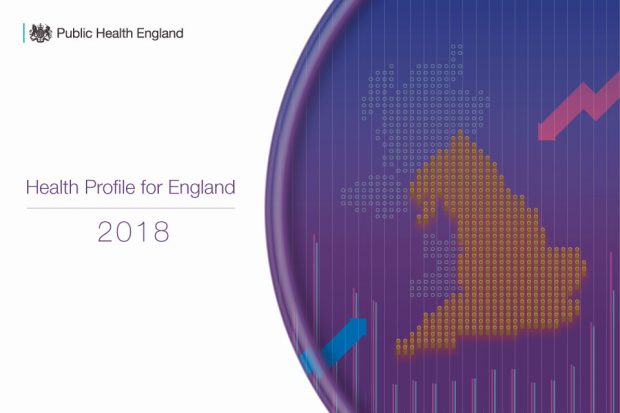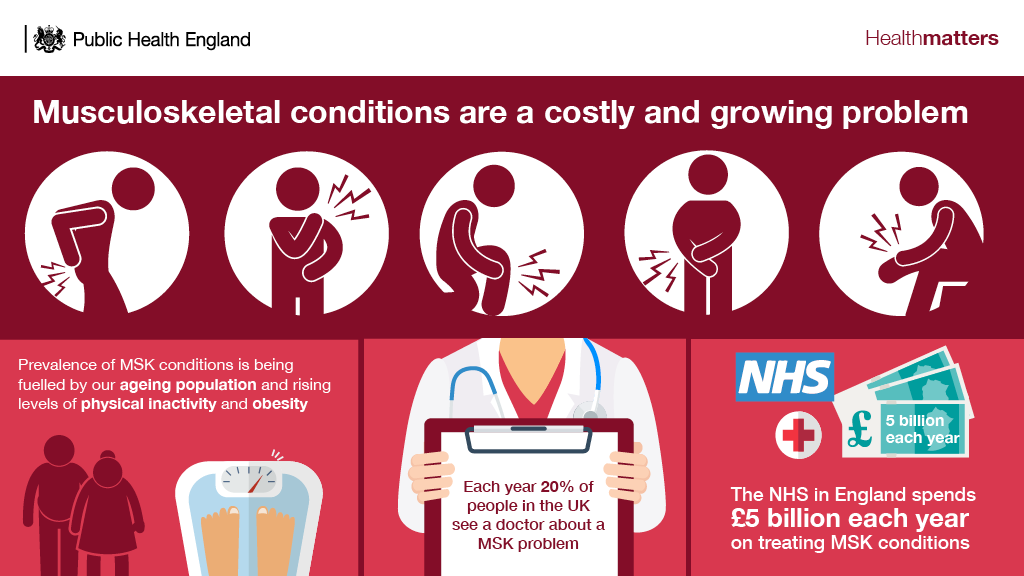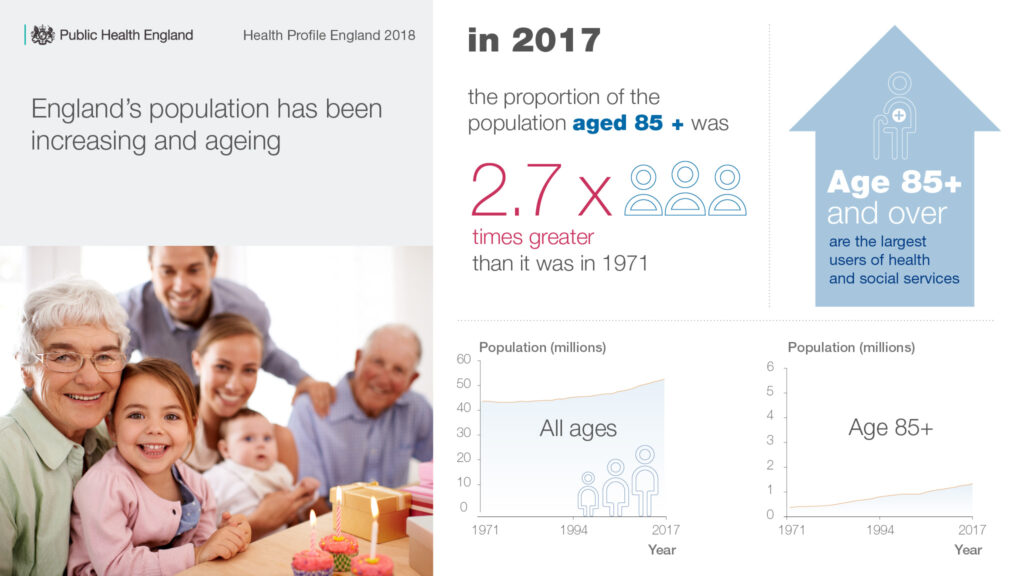
Arthritis and musculoskeletal (MSK) conditions affect over 17 million people across the UK, causing pain, disability, fatigue and often anxiety, depression or social isolation. Pain and joint stiffness limit movement, making activities such as spending time with family and friends or looking after a household much harder. Over half of people (57%) living with arthritis say they experience pain every day. These conditions disproportionately affect those who are socially and economically disadvantaged.
The impact of arthritis also stretches beyond the individual to services and the economy. Each year 20% of the population consult their GP about a MSK problem; and MSK conditions constitute the third largest NHS programme budget. Beyond the health service, MSK conditions are also responsible for 30 million working days lost each year, causing a substantial impact on the economy.

The Health Profile for England reports use the Global Burden of Disease study to highlight that low back and neck pain remain the biggest cause of ill health overall and across the age groups. There are 9.11 million people living with long-term back pain in England alone, and over 8.75 million people aged 45 and over have sought treatment for osteoarthritis. One reason why MSK conditions are the biggest contributor to morbidity is that they are generally not fatal, meaning people can live with them for many years.
As people age, the risk of having a MSK condition rises. Modifiable risk factors, those factors people can take measures to address, such as excess weight and physical inactivity, increase the risk of developing a MSK condition and can exacerbate an existing condition. A look at the Health Profile for England notes that there has been little change in these risk factors in recent years. Meanwhile it points out there are now half a million people in the UK in their 90s: more than two and a half times the number in 1985. Both of these factors help to explain the high burden of disease from MSK conditions.

It’s important to remember that MSK conditions are often one of many long-term conditions a person lives with (what we call multimorbidity). For instance, by 65 years of age, almost 1 in 2 people with a heart (47.1%), lung (49.2%) or mental health (47.3%) problem also have a MSK condition. The presence of any long-term condition is associated with a substantial drop-in quality of life, but when arthritis or back pain is present, the drop is greater.
The pain and functional limitations of arthritis make it harder to cope when living with multiple long-term conditions. Simple everyday tasks such as grasping small objects, standing or sitting can be difficult. As life with many long-term conditions can involve multiple tasks including taking medication, changing dressings, attending health appointments and undertaking exercise - this all becomes more challenging as arthritis limits a person’s ability to walk, bend, sit, or use their hands.
The ‘Musculoskeletal Conditions and Multimorbidity’ report by Versus Arthritis (formerly Arthritis Research UK) proposes seven recommendations for change. PHE and Versus Arthritis have agreed to work together to address the issues. Among the recommendations is that we work with other national bodies to raise awareness of this issue through high-quality data collection, analysis and publication. In addition, it is important to ensure that information, programmes and campaigns reflect and address the needs of the growing numbers of people living with many long-term conditions including MSK conditions.
With the numbers of people living with multiple long-term conditions projected to grow, it’s important that we understand the changing needs of this group and ensure they are met effectively. Health, care and public health systems must identify the impact of living with multiple long-term conditions, including MSK conditions, and take forward the opportunities to improve people’s health and wellbeing.
Download the graphs and infographics from the Health Profile for England and use them to inform constructive conversations about the health of people both locally and nationally.
